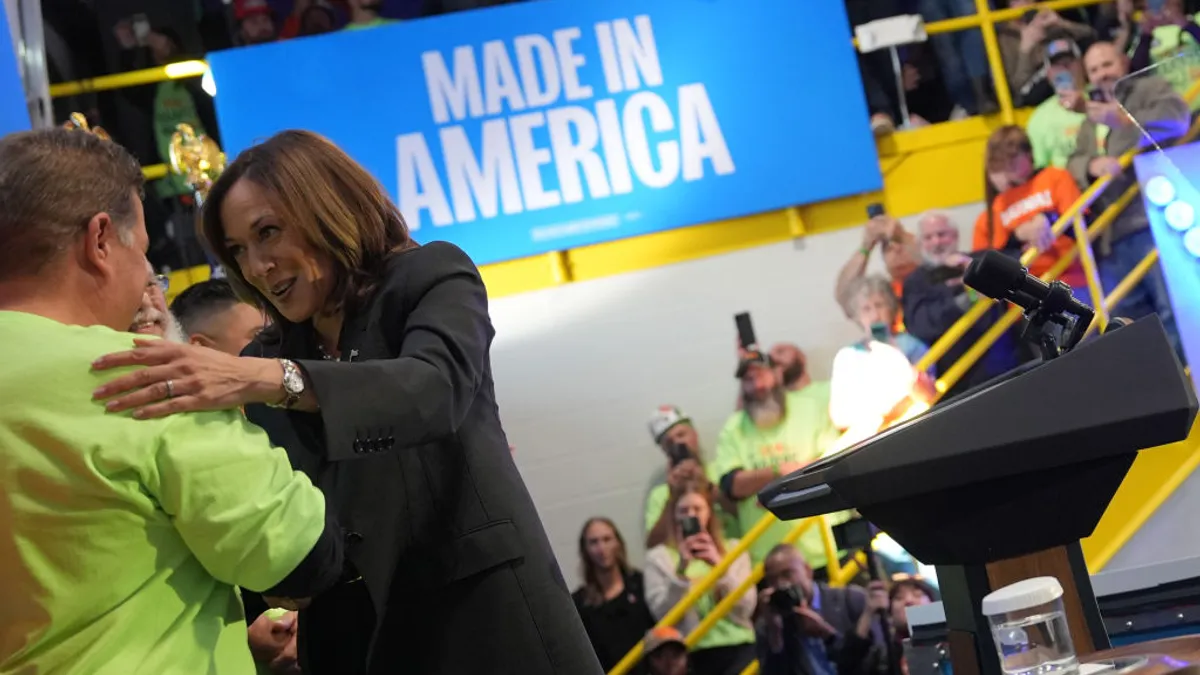Employers must remain vigilant against discrimination, harassment or intimidation in the workplace even during the COVID-19 pandemic, the U.S. Equal Employment Opportunity Commission has warned. But amid hiring freezes, furloughs and layoffs, companies might put diversity, inclusion and equity initiatives on the backburner. Research shows that despite the demonstrated benefits of inclusive and equitable environments, there's a perception gap as to its importance.
But that's not the case at Crowe LLP, a public accounting, consulting and technology firm headquartered in Chicago, Julie Wood, its chief people officer, told HR Dive in an interview. The firm's leadership has increased its commitment to diversity and inclusion, appointing its first ever chief diversity officer (CDO) April 9, Wood said.
The business case for diversity and inclusion
Prior to his appointment as CDO, Chris Mitchell had been with Crowe for six years serving as a consulting principal within the technology, media and telecommunications services group. "Crowe is already nurturing the values, ethics and culture of diversity, and as we mature as a business, it's critical to have the resources dedicated to it, as well," Mitchell said in a statement.
"Chris was a logical choice for us because he's been working with us for the better part of a year or more as our partner champion around D&I," Wood said. To come through the COVID-19 crisis as "a better and stronger firm," a focus on D&I was "more critical than ever," she said. "It was a statement to say even during the toughest of times, we are going to take the step and make this investment…rather than just fighting to survive in the short term and holding back on a decision we knew that was important for our future," Wood explained.
There's research that supports Crowe's viewpoint that a focus on D&I will help the company emerge stronger from what the Brookings Institution refers to as the "COVID-19 recession." Great Place to Work's 100 Best Workplaces for Diversity released in December 2019 focused on the experiences of people of color, women LGBTQ workers, generational representation and individuals with disabilities. Analysts found when doing research for the rankings that diverse companies fare better during recessions.
"We found that key metrics related to equity and inclusion not only drive stronger company innovation, but also predict whether companies will thrive or stumble during a recession," Michael C. Bush, CEO of Great Place to Work, said in a statement. During the Great Recession, "the S&P 500 suffered a 35.5 percent decline in stock performance"; however, "companies whose key employee groups had very positive experiences posted a remarkable 14.4 percent gain," according to the company. A report by analysts at The Wall Street Journal published in October 2019 revealed that the 20 most diverse S&P 500 companies generally performed better financially over five- and 10-year periods than non-diverse firms. And, a 2018 study by the Boston Consulting Group also found that diversity increases employers' bottom lines.
Crowe, named on the Fortune 100 Best Companies to Work list, discussed the potential for a chief diversity officer for a few years, Wood said. As the firm of 4,000 domestic and international employees led by CEO Jim Powers becomes more diverse, CDO is a leadership role that will help expand commitment to D&I, she said. "Diversity and inclusion are not only important to the firm, but important to our clients and prospects as well," Mitchell said. "This offers us an opportunity to grow and recognize the diverse backgrounds at Crowe."
Leadership commitment
Wood reports to Powers, and Mitchell will be her direct report to strategically align talent and D&I, she said. "I envision at some point the CDO may ultimately report out to the CEO, but we didn't want to lose that tight connection around the talent strategy as we get started," Woods added. All three executives are involved in Crowe's Inclusion Excellence Council (IEC). For the past year, Mitchell has been the chair of the internal group of 12 to 15 people who bring diverse perspectives from different geographies and business areas, Wood said. The IEC also has subcommittees on areas such as recruitment and mentoring.
It was important to have not only the CEO's buy-in but also that of an outside stakeholder: Crowe will have a CEO transition next year. Before appointing Mitchell to the CDO position, Wood said she and Powers consulted with the CEO-elect to ensure the commitment to D&I would continue. "We didn't want to take that step now, and then from a year from now, a new leader will come in and then say, for whatever reason, 'that's not important to me,'" she explained.
Research shows that leadership commitment to diverse and inclusive work environments leads to better performance. Inclusive leadership requires ensuring employees feel they are valued and respected, according to Harvard Business Review (HBR). "Teams with inclusive leaders are 17% more likely to report that they are high performing, 20% more likely to say they make high-quality decisions, and 29% more likely to report behaving collaboratively," HBR stated.
As a new leader, Mitchell "has already begun engaging with our business resources groups, on an active basis," Wood said.






















